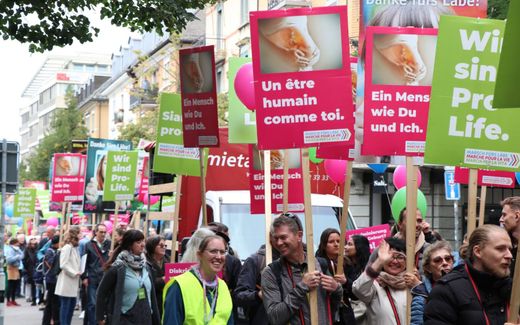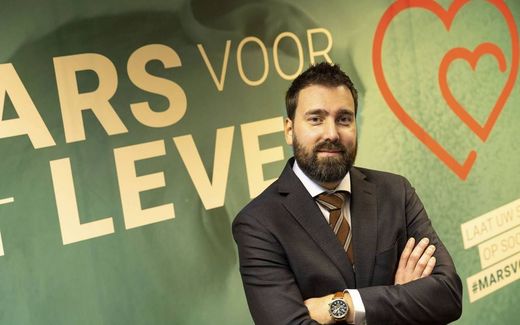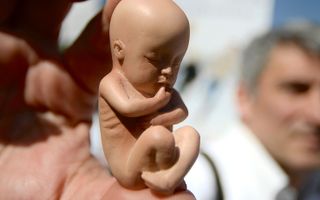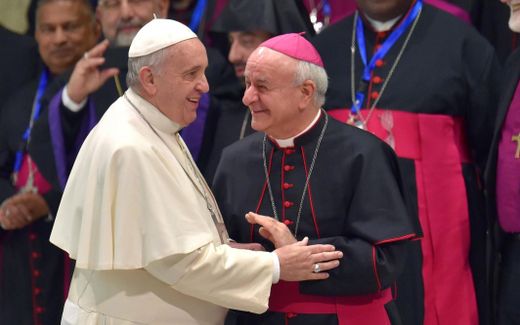Western Europe: All-Ireland Rally for Life and Dutch Week for Life challenge pro-abortion policy
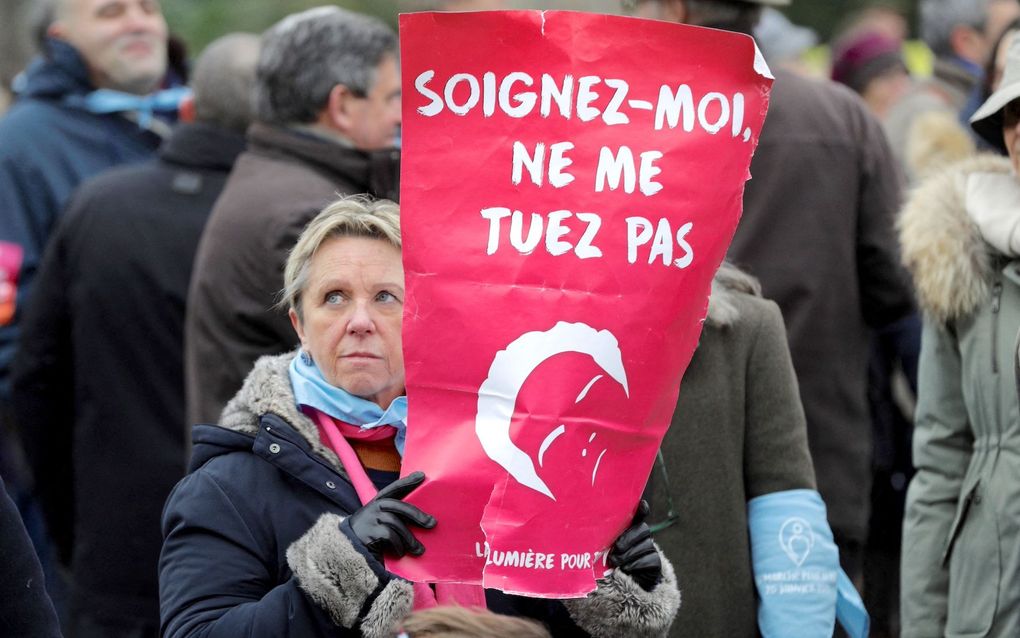
March in France. Photo AFP, Geoffroy van der Hasselt
Western Europe
After Ireland legalised abortion, the rate skyrocketed to 6,666 abortions, a number not previously seen in its history.
The Johnston's Archive, which has been recording abortions both at home and abroad for Irish citizens, reported significant increases last year.
In 2023, the rate jumped to 10,000 abortions performed, an all-time high in the country. Despite the sharp increases after the legalisation, Una MacMahon and her team at the Life Institute are now focused on raising awareness of the country's demographic crisis.
"Since then, the theme has changed slightly, focusing right now on the theme, 'Stop aborting our future', as well as looking at the demographic situation that is coming down the tracks for all countries, not just in Europe," she said to CNE.
The Life Institute also works with other pro-life organisations to coordinate large-scale marches. MacMahon said large marches were already held between 1992 and 1994 because of a critical court case known as the "X case."
The Irish Supreme Court ruled abortion to be legal in cases when the "woman's life is at risk" during a pregnancy, according to the European Court of Human RightsThe ruling later opened the door to several referenda, eventually leading to the one that legalised abortion in 2018. Changes came in 2007 when the Life Institute decided to hold an annual gathering called All Ireland Rally for Life that would include Northern Ireland.
"Our march was unusual also in that it is the All-Ireland Rally for Life and covers two jurisdictions, the North of Ireland (under rule from Westminster U.K.) and the Republic. So yes, complicated," she says.
Although several women refuse abortions every year after consultation, giving life to another generation remains the focus for the country's future, the Life Institute explained.
"We are still working away on the ground with rallies, helping those with crisis pregnancies, education and media," she says.
Western Europe: March for life in the Netherlands educates participants on abortion realities
After abortion was legalised in 1984, the national event, Week for Life, began its campaign to raise awareness of abortion's life-altering effects. Each year, the seven-day series of events take place from 9 November to 16 November. At least seven organisations participate nationwide, with Cry for Life (Schreeuw Om Leven) hosting an annual march for life and pro-life conference.
Chris Develing, a project leader at Week for Life by way of NPV – Zorg voor het leven (Care for Life) and a former employee of an organisation, Cry for Life, has been actively involved in the November events. "The emphasis has always been to speak in love and truth. Yet, we want to talk about what abortion is," he said.
Develing said that while some pro-life groups choose to hold up photos of aborted foetuses, they do not believe that this is effective. Although these explicit photos can be used effectively in a lecture, provided that a clear disclaimer is used, they can convey a more judging tone, he explains. "There are better ways to keep people invested," he says.
A more effective method has been the use of "language activism" in discussing abortion, though it is mostly a response to similar activism on the pro-choice side. "Language activism," he says, involves helping participants deconstruct terms such as a "clump of cells" and presenting the intricacies behind those words.
While Develing says that it is promising that many young people are speaking out against abortion, he feels that the pro-choice movement is using more aggressive tactics. In the last few years, Develing has seen an uptick in radical resistance movements such as Antifa interfering at their pro-life events. He also says that he has been faced with death threats, and some counter-protesters have vandalised property, such as defacing buildings with graffiti at pro-life events. On a national scale, the Dutch media have featured more commentators who speak out in support of abortion rights.
According to current abortion laws, a consultation with a doctor is required before performing an abortion, but it can be done on the same day. On 1 January 2023, the five-day waiting period was lifted. In a population where over 80 per cent say that they are pro-choice, much work has yet to be done. He also said that there is a small but growing minority that wants to see no gestational limit in abortion procedures.
These trends are not only happening within the Netherlands but throughout the E.U., he explains. "It takes bravery as a European," he said when it comes to opposing abortion.
Pro-life marches in Western Europe
Ireland:
What: All-Ireland Rally for Life
Where: Dublin. At least 55 local rallies were held across Ireland in 2024.
Organiser: The Life Institute and several other pro-life organisations supporting the local rallies
When: July
Marching since: 2007
UK:
What: Three public events- March for Life UK, Abortion Act Solemn Witness event, and Prayer Vigil for Life
Where: All events take place in London
Organiser: March for Life UK
When: Annual march: September
Abortion Act Witness: October
Prayer Vigil for Life: April
Marching since: 2012
France:
What: Marche Pour la Vie (March for Life)
Where: Paris and Lyon
Organiser: Several pro-life associations plus its own committee- En marche pour la vie
When: January
Marching since: 1988
The Netherlands:
What: Mars voor het Leven or march for life (independent from the global initiative, March for Life)
Where: The Hague
Organiser: Cry for life (Schreeuw om leven)
When: 16 November
Marching since: 1992
Belgium:
What: Marche pour la vie à Bruxelles or March for Life in Brussels
Where: Brussels
Organiser: Clara Life
When: April
Marching since: 2010
Luxembourg
No data available.
Feel free to let us know if some data need to be corrected or added. This overview is open for change.
Related Articles


